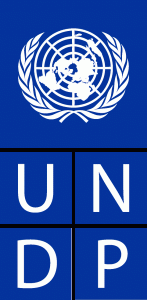 ASTANA – Over the past decade, the United Nations Development Programme (UNDP) has supported important social changes. In building a new socially conscious government, the UNDP has worked to assist Kazakhstan in building a breakthrough model of state management where the interests of consumers of state services are treated with the utmost importance.
ASTANA – Over the past decade, the United Nations Development Programme (UNDP) has supported important social changes. In building a new socially conscious government, the UNDP has worked to assist Kazakhstan in building a breakthrough model of state management where the interests of consumers of state services are treated with the utmost importance.
A new series of reforms was launched after the 2010 presidential decree titled, “On the 2020 Strategic Development Plan of the Republic of Kazakhstan.” This document identified five areas in which the state will carry out reform. Among other things, the document covers improving the quality of state services through implementing standards and updating the processes that contribute to the effective delivery of state services.
“The effectiveness of the state will manifest itself in the provision of affordable and quality state services,” states the document.
From this time forward, the presidential administration will be using a performance management system for government agencies that will hold state agencies accountable to both the public and government.
Because developed countries’ government agencies have had effective evaluation systems for a long time, the presidential administration requested UNDP assistance in studying relevant foreign practices.
A programme was launched to find more effective models of governance that had never been seen before in Kazakhstan; they were presented using advanced models adapted to Kazakhstan’s specific needs. Based on a review of the best practices worldwide, six methodologies in six areas for assessing government agencies were developed.
To further explore foreign methodology in enhancing the effectiveness of government agencies, the UNDP organised a trip to Canada for state body representatives for training purposes. According to former deputy head of the presidential administration Bauyrzhan Baibek, “familiarity with these successful methods has ensured the progress of our work on government control. Evaluations have been ongoing in Canada for over 30 years. As a result, Canada is ranked in the top ten worldwide.”
Having studied Canadian experience as requested by the President of Kazakhstan, in 2010, Kazakhstan implemented a pilot project for evaluating 39 government agencies including 16 akimats (local administrations.) The assessment was activity-specific and examined things ranging from the efficiency of pursuing strategic objectives to quality assessment of government services.
The results of this evaluation showed that in Kazakhstan, there are still problems with availability and transparency in government services. There was no systematic understanding of the concept of state service; a complete registry of state services had not yet been created and citizens were not aware of their rights to particular services. In 2012, issues surrounding improving state services were included in the President’s state-of-the-nation address “Kazakhstan 2050,” during which the head of state said, “Special emphasis should be put on improving the quality of state services. The task is to move away from one-sided authoritative approaches in relations between the state apparatus and the population and construct effective and efficient government services.”
Following the President’s request, with the active participation of UNDP international experts, the Ministry of Economy and Budget Planning developed a new law titled “On state services.” The UNDP also mobilised the public in developing in 2013. The law introduced the following transformational changes in the further development of society.
Firstly, the new law made it possible to increase the number of state services. A UNDP-supported-law on a new register of state services increased their number to 647. The UNDP contributed to the improvement of state services through expanding public access to more than 640 state services; in comparison to last year, public access to more than 60 standardised services increased.
Secondly, for the first time in Kazakhstan, citizens and NGOs had the opportunity to monitor the quality of state services via the legislature; this increases accountability and transparency in state bodies. In regards to civil society, involvement and increasing the capacity of NGOs, in 2013, the UNDP together with the Ministry of Economy and Budget Planning awarded grants to NGOs to monitor the quality of state services. These NGOs evaluated more than 40 state services in fields such as healthcare, education, social protection and registration. All recommendations were later implemented.
In addition, training sessions supported by the UNDP were conducted for NGOs. Also, within the project, a survey on the level of satisfaction with the quality of state services was conducted in four regions of Kazakhstan.
In 2013, the first results of citizen and NGO assessments were recognised and addressed by the government and presidential administration. Public and state authorities managed to hold an extensive discussion on the results found during monitoring and by the survey of citizens at the International Conference on Improving State Service Systems in Astana on Nov. 20, 2013. This important change in the perception of civil society by the authorities will soon bear fruit.
Currently, the UNDP, together with the Ministry of the Economy, developed informational web portals for state services, where every citizen of Kazakhstan will be able to find information on services of interest.
Because of the success of past dealings, the UNDP has indicated it is ready to further support government initiatives that aim to improve the nation’s quality of life and support government agencies and NGOs in delivering state services and the effective application of international best practices in this field.


